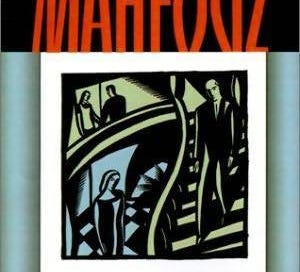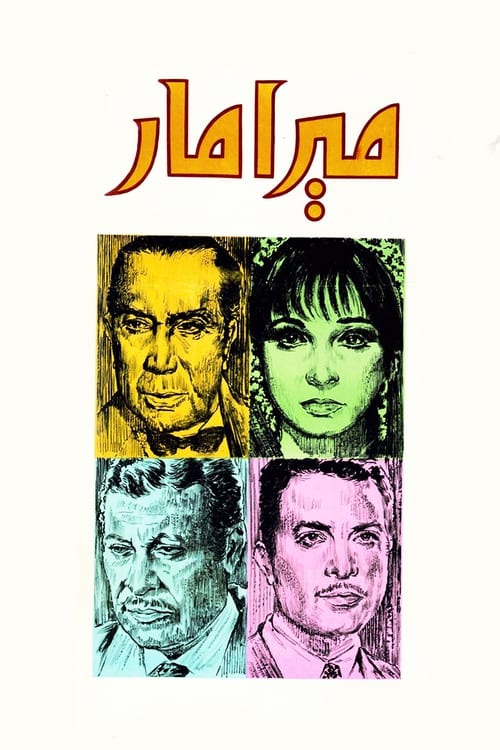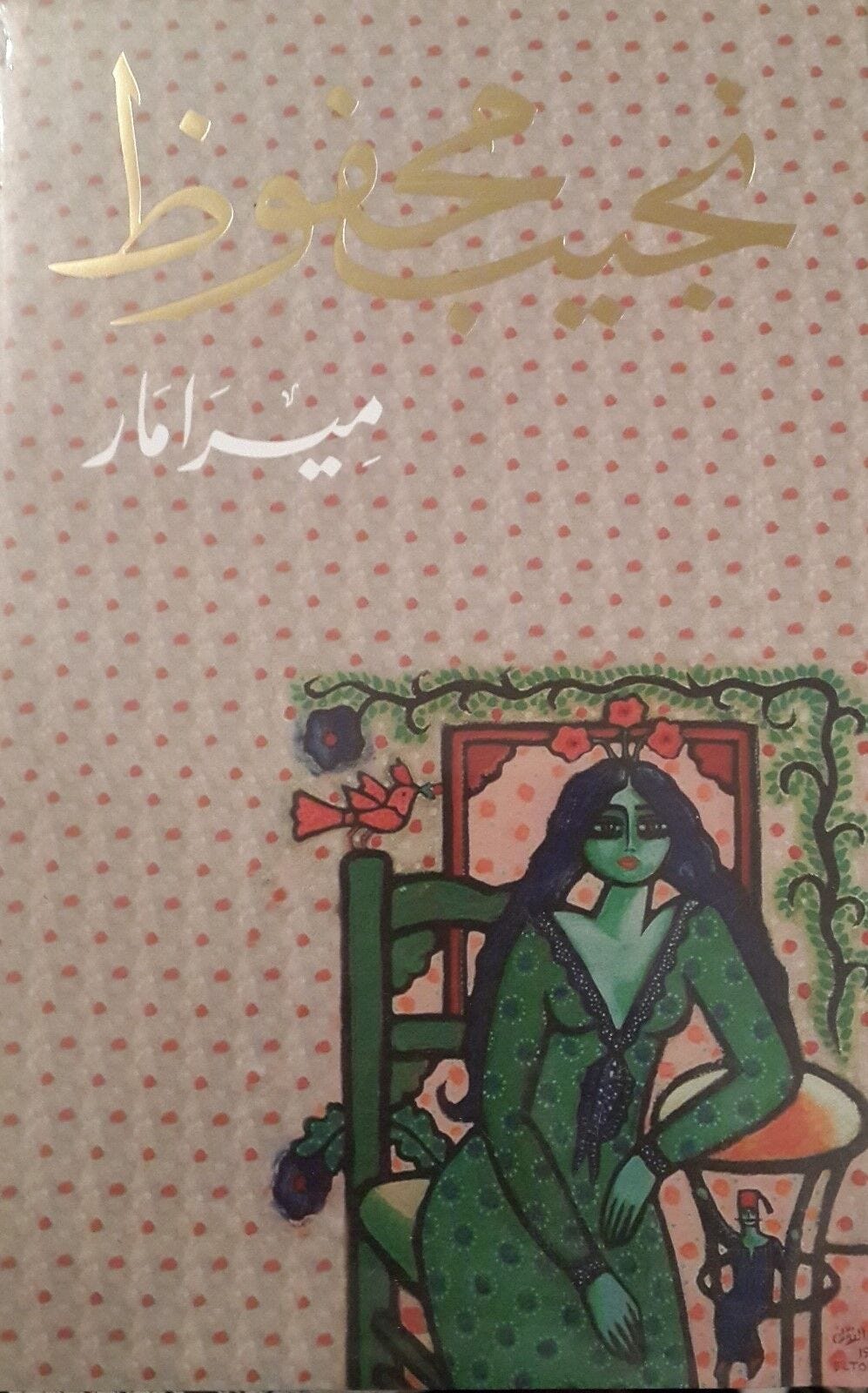Come Relive the Old Days at 'Miramar'
Just try not to harass the staff and everyone should make it out just fine
Miramar is one of those cultural staples that forces us to look at ourselves and how we treat other people and then go on mistreating other people because we don’t know how to be any different. It forces us to wonder what the point is of anything if there is no such thing as a perfect system then why do revolutions even occur when people end up worse off for them after the violence is done and over with?
History of the Time and Author
As I previously said in my review of Granada, I’m not much of a historian but the novel is set in Alexandria during the 1960’s when the 1952 Revolution is still fresh. I don’t doubt that everyone knows the particulars that matter during that particular time in Egyptian history because it really mattered to the West when it did happen. Mahfouz, however, frames the events in 1952 as a continuation of the 1919 Revolution which was led by Saad Zaghloul and brings an important societal context to the preconditions of 1952.
“He started all these troubles. This class business. His impudence, his arguing the toss with the King and playing up to the masses was only the beginning. It was an evil seed he sowed. And now like a cancer it’ll finish us one and all.”
-Tolba Bey Marzuq on Saad Zaghloul (Ch. 1)
So here’s something to watch to fill in some gaps so the Nasser era makes more sense and we know what Wafdism means. The video is a little dramatic but it was a pivotal time for Egyptians and it captures how tired everyone was of the whole world enjoying the land’s resources while the natives got scraps and suffered the indignities of a foreign military whether it be British in origin or vaguely Turkish.
Writing sociopolitical commentary is Naguib Mahfouz’s specialty. His most famous work is Palace Walk which is about the 1919 Revolution as it happens to an actual family (which I will cover at some point.) He was born in 1911 and died in 2006 and so was influenced by all of the political unrest happening all around around him and took to becoming inspired by existentialist writers, especially Proust. He wrote more than 35 novels during his lifetime and he remains to be the only Egyptian writer to be awarded the Nobel Prize in Literature. The Swedish and Norwegians should absolutely feel called out by that.
“Writing is for men who can think and feel, not mindless sensation seekers out of nightclubs and bars.” (Ch.1)
The one thing that I personally find most interesting about Mahfouz is that for many of the stories he published as novels for people to read, he also wrote them as screenplays for people to watch. This includes Miramar in which a film came out in 1969; two years after the novel came out. We will not be watching it this month but I do have a good one in store.
Characters and Synopsis
There are a lot of ways to spell the character names so I’m going to be using the ones that I read in my copy of the book.
Amer Wagdi: A retired journalist in his 80’s. Amer comes to pension Miramar to live out the rest of his days where he knows he will be comfortable around the place and the people, namely Mariana.
Mariana: A Greek woman who married a British officer during the First World War and lost her fortune during the 1952 Revolution, she looks to run her business respectfully and remain as beautiful as she once was.
Tolba Marzuq: A former landowner before the 1952 Revolution who has had his land taken from him and nationalized so that it belongs to his former tenants. He detests the call for social equality and is largely disliked by everyone in the pension save for Mariana.
Zohra: A young girl runaway from her village called Zayadiyya to Mariana whom she remembers when she and her father sold vegetables to the pension. She works as a servant and is an object of desire for many of the young men who come to Miramar.
Hosny Allam: A rich landowner from a well-to-do family in Tanta. He hates the 1952 Revolution for stripping him of the prestige he used to have in his class and is looking to start a business so he doesn’t end up like Tolba.
Mansour Bahy: A young broadcast journalist who feels lost and finds a kinship with Amer and a deep friendship with Zohra. He feels hopelessness and shame after seeing the corruption of the socialists and gets lost after his disillusionment with politics.
Sarhan al-Beheiry: An accountant for a textile company and is from modest wealth. He was apart of the Wafd Party before it dissolved in the 1952 Revolution. He feels the need to compensate for the wealth and prestige he doesn’t have which causes him to act selfishly to others.
The novel begins with Amer Wagdi entering an empty Miramar to move in so he can be with Mariana after regretting not being with her in his youth. Then Tolba Bey Marzuq enters hoping to reignite his affair with Mariana but sees that she is completely uninterested in him sexually if he has no wealth to speak of anymore. Zohra comes to the pension looking for work and refuge from her grandfather looking to marry her off to some geriatric old man in her home village. This act of running away opens Zohra up to advances from every male character in the novel except for Amer who takes a more paternalistic role towards her.
All at the same time arrogant Hosny Allam, shy Mansour Bahy and gregarious Sarhan al-Beheiry check into the pension and all immediately take notice of how beautiful and demure Zohra is. Everyone gets to know each other and fall into their cliques during an Umm Kulthum concert and predictably, everyone hates each other. Sarhan gets to Zohra first and she falls in love with him knowing full well that her status as an illiterate fellaha (peasant) would be a problem if they were ever to get married. Hosny gets jealous of Sarhan for always getting everything so easily and Mansour hates Sarhan for how cruelly he’s treating Zohra. To remedy her situation, Zohra starts to take lessons from a tutor named Aleya in the cafe of the pension so she can eventually become marriageable to someone like Sarhan. To anyone else asking it’s so she can learn a trade and rely on herself and never have to go back to her village.
“A peasant girl, away from home, alien in that pension, like a faithful dog astray, looking for its master.”
- Sarhan al-Beheiry when talking about Zohra (Ch. 4)
A woman named Safeya comes to the pension to berate Sarhan for leaving her whom he says was his fiancée. A misogynistic newspaper seller named Mahmoud Abu-Abbas wants to marry Zohra and she refuses him which makes him and Sarhan get into an altercation thanks to Hosny’s jealous meddling. Hosny then drunkenly assaults Zohra causing him and Sarhan to fight in the pension thereby distressing Mariana. The whole love story between Zohra and Sarhan comes to nothing when it’s revealed that he got engaged to Aleya, Zohra’s tutor anyway. Just when everyone is disgusted with Sarhan, he gets evicted and then he’s found dead on the morning of New Year’s Eve and it looks to be a murder at first glance.
What I Got Out of It
This book is interesting in that I didn’t know so much happened in this 180-something page novel until I sat down to type it out because of one very interesting feature. With every new chapter, the point of view changes to a different character and the events of the story start over.
Chapter One is Amer Wagdi’s,
Chapter Two is Hosny Allam’s,
Chapter Three is Mansour Bahy’s,
Chapter Four is Sarhan al-Beheiry’s
and Chapter Five circles back to Amer Wagdi to narrate the denouement.
This technique offers a birds-eye view of how Sarhan died and who played what role leading up to his death. We get details and timing as well as attitudes of everyone else as if they were a suspect in this supposed murder. Mahfouz delegates the role of detective to the reader. In this way we can see how socioeconomic backgrounds serve to complicate interpersonal relations.
“Love is only an emotion and you can cope with it one way or another, but marriage is an institution, a corporation not unlike the one I work for, with its own accepted laws and regulations. What’s the good of going into it if it doesn’t give me a push up the social ladder?” (Ch. 4)
What also stuck out to me was how I hated all of these people. Going chronologically: Hosny is an arrogant bastard who only wanted to take Zohra from Sarhan because he viewed her as a plaything he wanted a turn on and didn’t see her any differently than how he saw a woman at a brothel. Mansour was a man who stuck to his principles so much that his mind turned to stone and so he alienated himself from everyone and damned himself to a life of extreme loneliness. Sarhan purported to be this nice and well mannered man but treated everyone as a pawn on a chess board and ended up with nothing anyway to the point where no one really mourned his death.
Final Thoughts
“It was his turn to the play the fool, now that his withered glory had left us with a nation of parasites.” (Ch.3)
Normally we think of revolutions as being sources of hope and great equalizers for a country. It presents an opportunity to reexamine and deconstruct a whole nation’s values and decide what to keep and what to do away with. The truth of the matter is that a revolution is not an easy or quick process and they often fail far more than they succeed. Moreover a revolution offering a better life to the people going through so much change when the whole world has a vested interest in this place being a certain way is the ultimate uphill battle.







